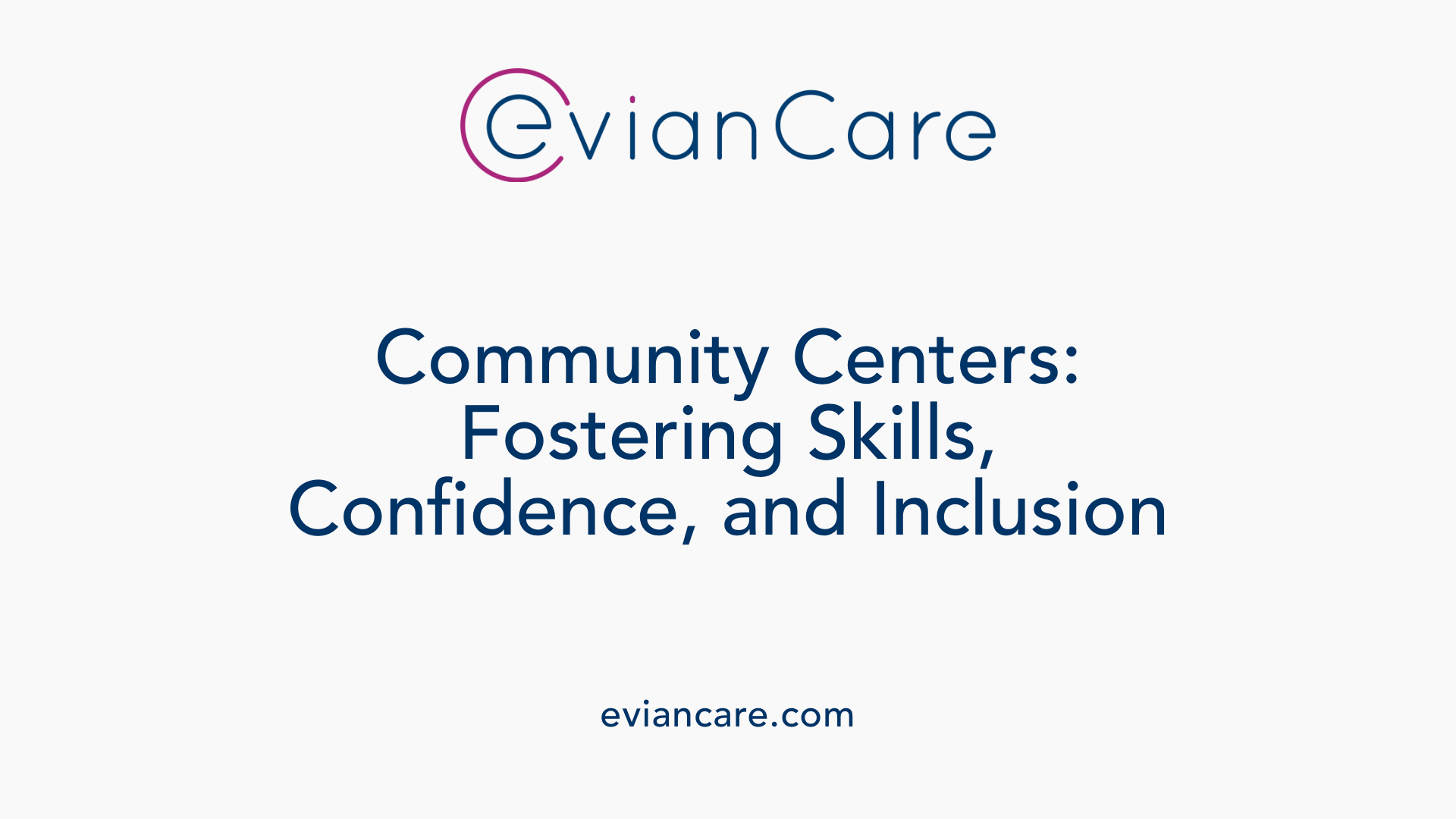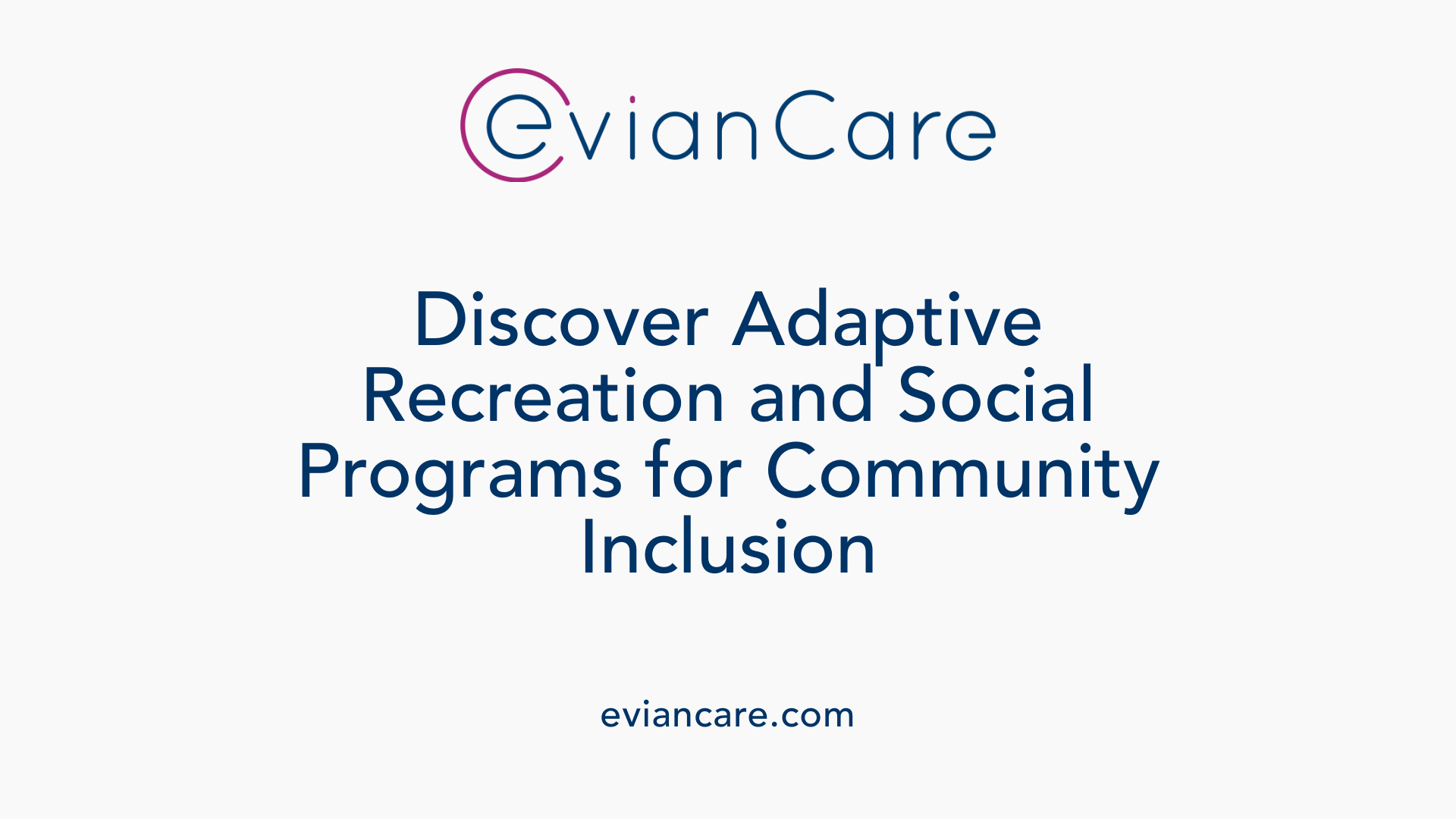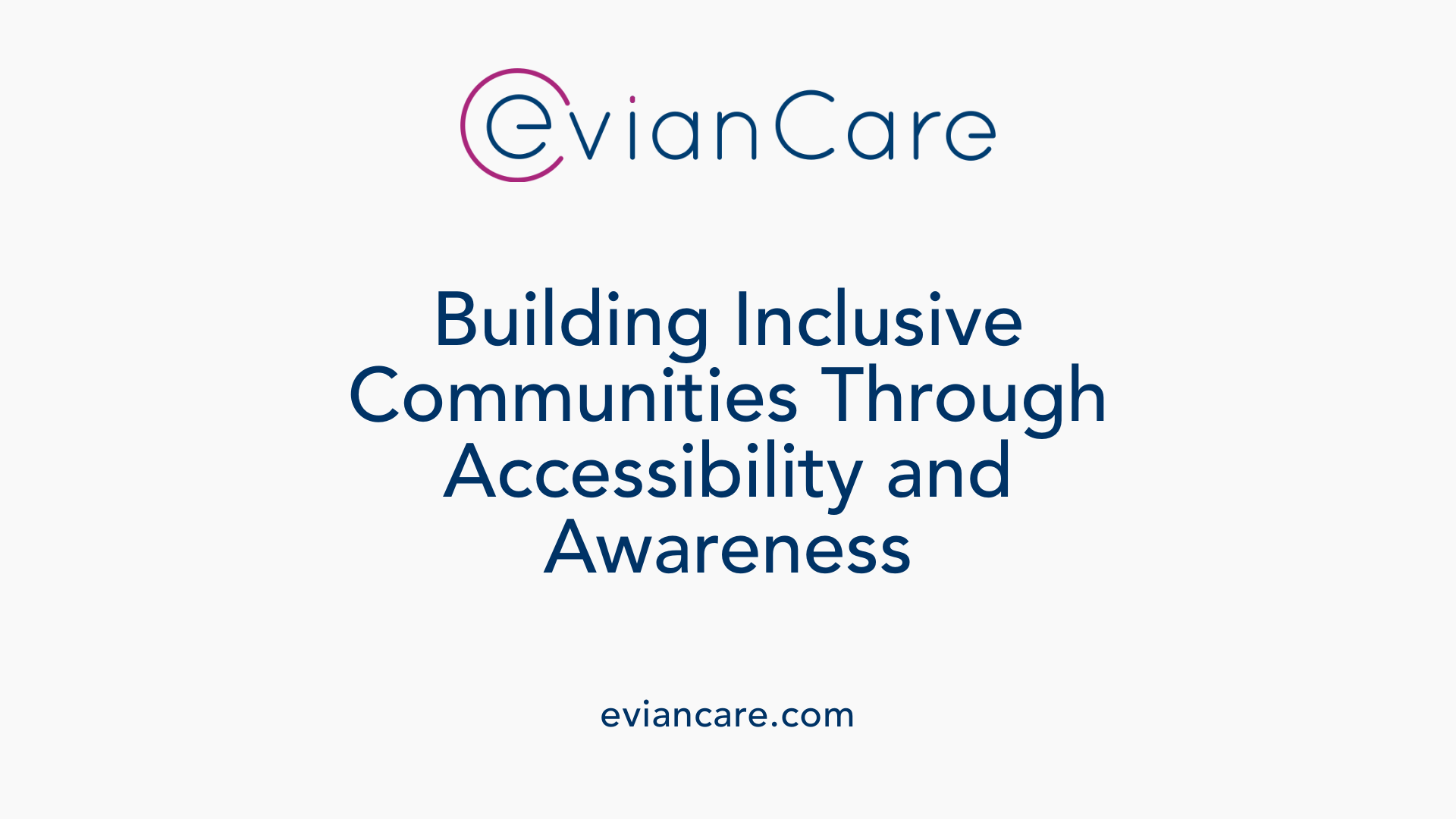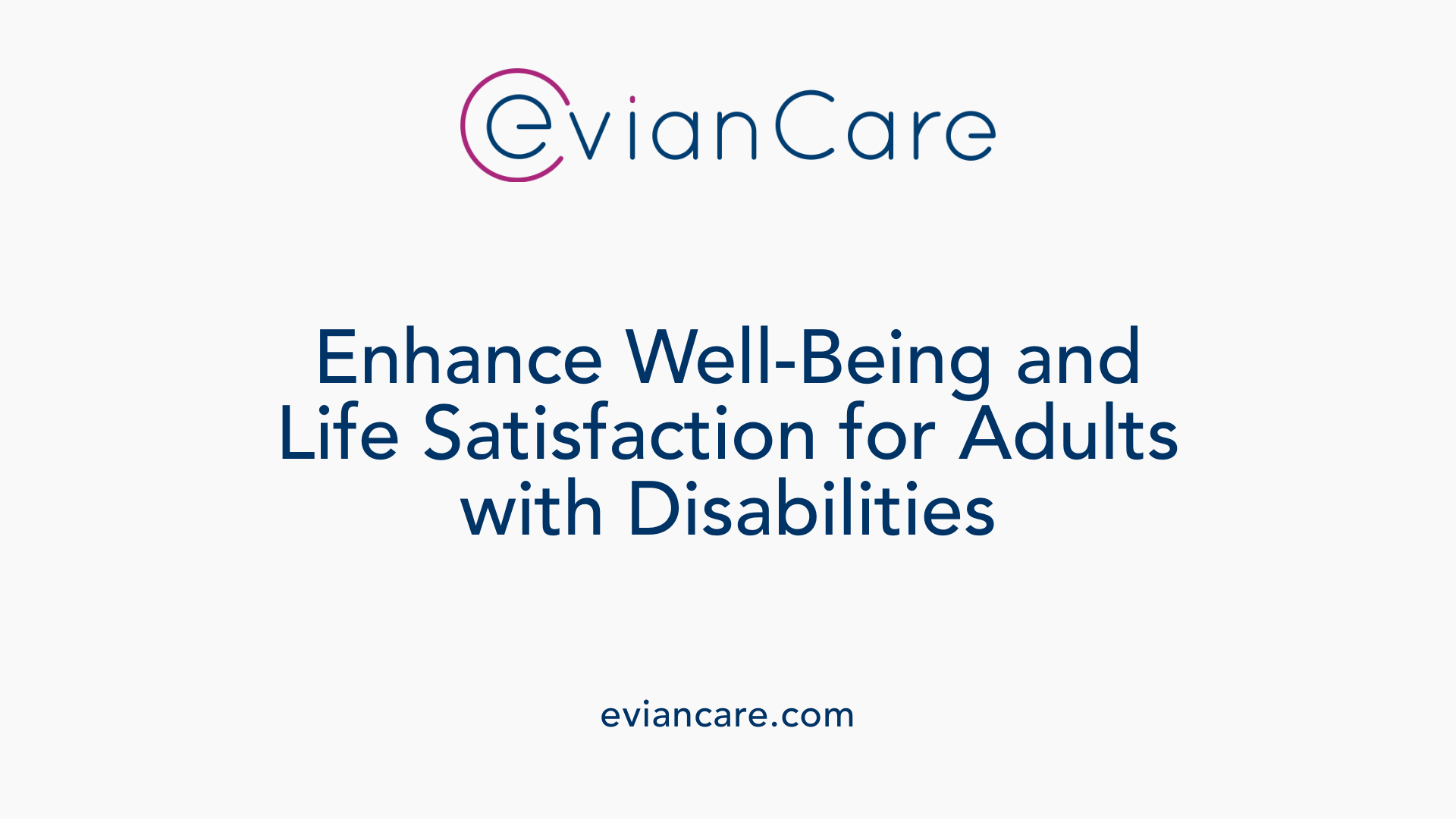
Understanding the Vital Role of Community Centers
Community centers are essential pillars in fostering social inclusion and providing vital support for adults with disabilities. They serve as accessible hubs that promote participation in social, recreational, educational, and professional activities. Their significance is rooted in historical legal frameworks like the Olmstead v. L.C. decision, which reaffirmed the rights of individuals with disabilities to live and participate in integrated community settings. By offering tailored programs, promoting accessibility, and encouraging community engagement, these centers help bridge gaps between individuals with disabilities and society at large, contributing dramatically to their quality of life.
Supporting Self-Determination and Independence

What is the role of community centers in supporting adults with disabilities?
Community centers are essential hubs for fostering independence and social inclusion among adults with disabilities. They offer a wide range of activities—from arts and crafts to fitness classes and recreational outings—that help individuals develop skills and form meaningful relationships.
These centers serve as accessible environments that break down physical and social barriers. Through inclusive programs, they promote acceptance, confidence, and a sense of belonging, which are vital for personal growth.
Moreover, community centers actively support caregivers by providing respite and creating support networks for families. They also help participants gain independence by encouraging self-expression and community participation.
Overall, community centers contribute significantly to enhancing the quality of life for adults with disabilities, empowering them to live more self-determined lives while strengthening societal inclusion.
Skills Development
Participation in community activities helps adults with disabilities learn practical skills such as communication, problem-solving, and self-care. Skill development programs at community centers enable individuals to manage daily tasks more effectively, boosting their confidence and independence.
Self-Advocacy
Community involvement encourages self-advocacy, which is crucial for expressing needs and making informed choices. Centers provide education and support for adults to advocate for their rights, access services, and participate actively in community decisions.
Community Participation
Engaging in community events, volunteer programs, and recreational activities broadens social networks and reduces feelings of loneliness. Activities like attending local sports, arts, and cultural events cultivate social bonds and participation, which are beneficial for mental and physical health.
Independent Living
Living independently is increasingly feasible with the support from community centers that offer life skills training, transportation options, and social resources. These programs enable adults to thrive within their communities, promoting autonomy and personal fulfillment.
| Aspect | Activities/Support | Benefits |
|---|---|---|
| Skills Development | Workshops, training sessions, peer mentoring | Increased competence, confidence, and independence |
| Self-Advocacy | Educational programs, empowerment sessions | Enhanced ability to communicate needs and rights |
| Community Participation | Social outings, volunteer opportunities | Stronger social connections and sense of belonging |
| Independent Living | Life skills coaching, accessible transportation | Greater independence, improved quality of life |
Progress in supporting adults with disabilities hinges on accessible, inclusive programs that promote personal growth and societal integration. Community centers remain at the forefront of these efforts, fostering environments where adults with disabilities can thrive, participate, and feel valued in their communities.
Programs and Services Enhancing Community Integration

What are the main programs and services provided by community centers to support adults with disabilities?
Community centers play a vital role in fostering community integration for adults with disabilities by offering a broad spectrum of supportive programs and activities. These initiatives are designed to promote physical health, social cohesion, and independence.
One significant offering is adaptive recreation, which includes accessible sports, arts, and cultural activities tailored to meet various abilities. This might include wheelchair basketball, sled hockey, and adaptive dance classes tailored for individuals with physical or cognitive disabilities.
Fitness classes are another important service, helping participants improve their overall health and maintain physical well-being in an inclusive environment. These classes often incorporate modifications and assistive technologies to ensure everyone can participate fully.
Social groups and facilitated community outings encourage social interaction and help combat loneliness among adults with disabilities. Regular trips to local museums, parks, or community events provide opportunities for meaningful engagement and friendship building.
Inclusive programs like drama clubs, eSports, and relaxation activities are designed to foster self-expression, teamwork, and stress relief. Community centers also provide support by including accommodations, such as interpreters or adaptive equipment, enabling all individuals to participate comfortably.
Beyond recreation and fitness, many centers promote advocacy and education, cultivating understanding and acceptance within the larger community. Programs such as home and community supports, adaptive sports leagues, and accessible facilities work together to create an environment where adults with disabilities can thrive.
The ultimate goal of these services is to enhance social connections, boost personal confidence, and facilitate full community involvement. Through these initiatives, community centers help adults with disabilities lead fuller, more connected lives, while enriching the diversity and vibrancy of the broader community.
Promoting Disability Inclusion and Societal Engagement
 Community centers are vital hubs for fostering inclusion and active engagement of people with disabilities in society. They prioritize accessible facilities, such as wheelchair ramps, sensory zones, and assistive technology, to guarantee physical access for everyone. These features reduce barriers and make participation possible for individuals with a variety of needs.
Community centers are vital hubs for fostering inclusion and active engagement of people with disabilities in society. They prioritize accessible facilities, such as wheelchair ramps, sensory zones, and assistive technology, to guarantee physical access for everyone. These features reduce barriers and make participation possible for individuals with a variety of needs.
Besides physical accessibility, community centers invest in raising public awareness through educational programs, campaigns, and inclusive policies. These initiatives aim to foster understanding, dispel stereotypes, and normalize the active participation of people with disabilities in all aspects of community life.
Successful inclusion also depends on collaboration among various stakeholders. Community centers work closely with government agencies, schools, healthcare providers, nonprofits, advocacy groups, and local businesses. This partnership approach helps identify specific needs, develop tailored solutions, and mobilize resources for more inclusive environments.
Moreover, these centers implement feedback and evaluation tools to assess progress and refine their strategies continually. By establishing partnerships and encouraging community involvement, they create welcoming and supportive spaces.
Ultimately, through infrastructure, education, and collaboration, community centers play an essential role in empowering individuals with disabilities, enabling them to participate fully in social, cultural, and leadership roles within their communities.
For further strategies and policies on disability inclusion, sources such as government publications, disability advocacy organizations, and community program guides can provide valuable insights.
Benefits to Well-Being and Community Integration

What benefits do community centers offer to the well-being and skills development of adults with disabilities?
Community centers play a vital role in enhancing the well-being of adults with disabilities. They serve as inclusive environments where individuals can engage in social activities, fostering connections that combat loneliness and promote mental health.
Participation in diverse programs such as arts, crafts, physical fitness, and recreational outings allows individuals to express themselves creatively, build confidence, and develop new skills. These activities encourage independence and help improve social skills like communication, teamwork, and problem-solving.
Supportive community settings also contribute to personal growth by promoting self-esteem and providing a sense of belonging. For caregivers, many centers offer respite services, alleviating stress and allowing families to thrive.
Furthermore, community centers facilitate broader societal integration. By participating in local events, volunteering, or joining interest groups, adults with disabilities can contribute meaningfully to their communities. This active engagement enhances overall life satisfaction, mental health, and physical well-being, leading to a more inclusive and supportive society.
Overall, community centers are foundational in creating opportunities for adults with disabilities to live richer, more independent, and socially connected lives, benefiting both the individuals and the community at large.
Community Centers as Catalysts for Quality of Life Improvements
How do community centers contribute to enhancing the quality of life for adults with disabilities?
Community centers play a vital role in improving the lives of adults with disabilities by offering a variety of supportive and engaging activities designed to cater to diverse needs. These facilities provide therapeutic programs such as adaptive sports, art therapy, and wellness activities that encourage physical movement and mental relaxation. Participating in wheelchair basketball, sled hockey, or arts and crafts not only promotes physical health but also boosts confidence and social skills.
Social inclusion is a core focus of community centers. They create welcoming environments where individuals with disabilities can build friendships, join social groups, and participate in community events. Inclusive activities foster a sense of belonging and help reduce feelings of loneliness or marginalization. Community centers often serve as hubs for social participation, offering accessible facilities and program adaptations to ensure everyone feels welcome.
Supports for independence are also prominent at these centers. Through skills training, self-advocacy workshops, and resource sharing, adults with disabilities learn to manage daily tasks, make informed choices, and develop self-determination. Centers for independent living collaborate with these community programs, providing advocacy, life skills coaching, and peer mentoring to empower individuals to live more independently.
Physical and mental health benefits are enhanced through accessible and inclusive activities. Social engagement in group programs improves mental well-being, while adaptive physical activities promote fitness and coordination. The combination of social and physical activities contributes to overall health, preventing isolation and supporting emotional resilience.
Overall, community centers serve as essential environments that promote an inclusive society. They provide opportunities for recreation, social contact, skill development, and health support, which collectively elevate the quality of life for adults with disabilities. By fostering community integration and independence, these centers enrich lives, encouraging participation, growth, and well-being.
Strategies, Policies, and Challenges in Supporting Adults with Disabilities
What strategies and policies do community centers use to support adults with disabilities?
Community centers employ a range of inclusive strategies and policies to effectively support adults with disabilities. These strategies include adopting universal design principles to create accessible environments that accommodate diverse needs. Facilities are equipped with features such as ramps, elevators, visual and auditory aids, and adaptive equipment to foster physical accessibility.
Programs are tailored to promote real-life skills, self-determination, and social engagement. For example, community centers offer adapted recreational activities, skill-building workshops, and peer support groups to enhance social participation and independence.
Laws like the Americans with Disabilities Act (ADA) and the Rehabilitation Act form the backbone of legal support, ensuring that community programs provide reasonable accommodations and prevent discrimination. Many centers also advocate for increased funding and collaborate with local organizations to expand community-based supports, helping prevent unnecessary institutionalization.
By fostering inclusive practices and culturally competent services, community centers create welcoming environments that encourage adults with disabilities to engage openly in community life. These efforts collectively enhance quality of life, promote social cohesion, and support lifelong participation in societal activities.
Fostering Inclusive Communities for a Better Future
In summary, community centers are fundamental in creating inclusive environments that support adults with disabilities. Through a comprehensive array of programs, policies, and community partnerships, they facilitate social inclusion, promote independence, and enhance overall well-being. Addressing existing challenges and investing in systemic reforms will enhance their impact, ensuring that individuals with disabilities can participate fully in their communities. By embracing inclusive practices, society can build stronger, more diverse communities where everyone has the opportunity to thrive.
References
- Community Integration for People with Disabilities | UDS
- Empowering Adults with Disabilities Through Community Inclusion
- The Importance of Community Service for Adults with Disabilities
- How Community Services Support People with Disabilities
- Explore the Benefits of our Community Center | Kennewick, WA
- The Importance of Community Inclusion for I/DD Children and Adults
- Community Living and Participation - AAIDD












